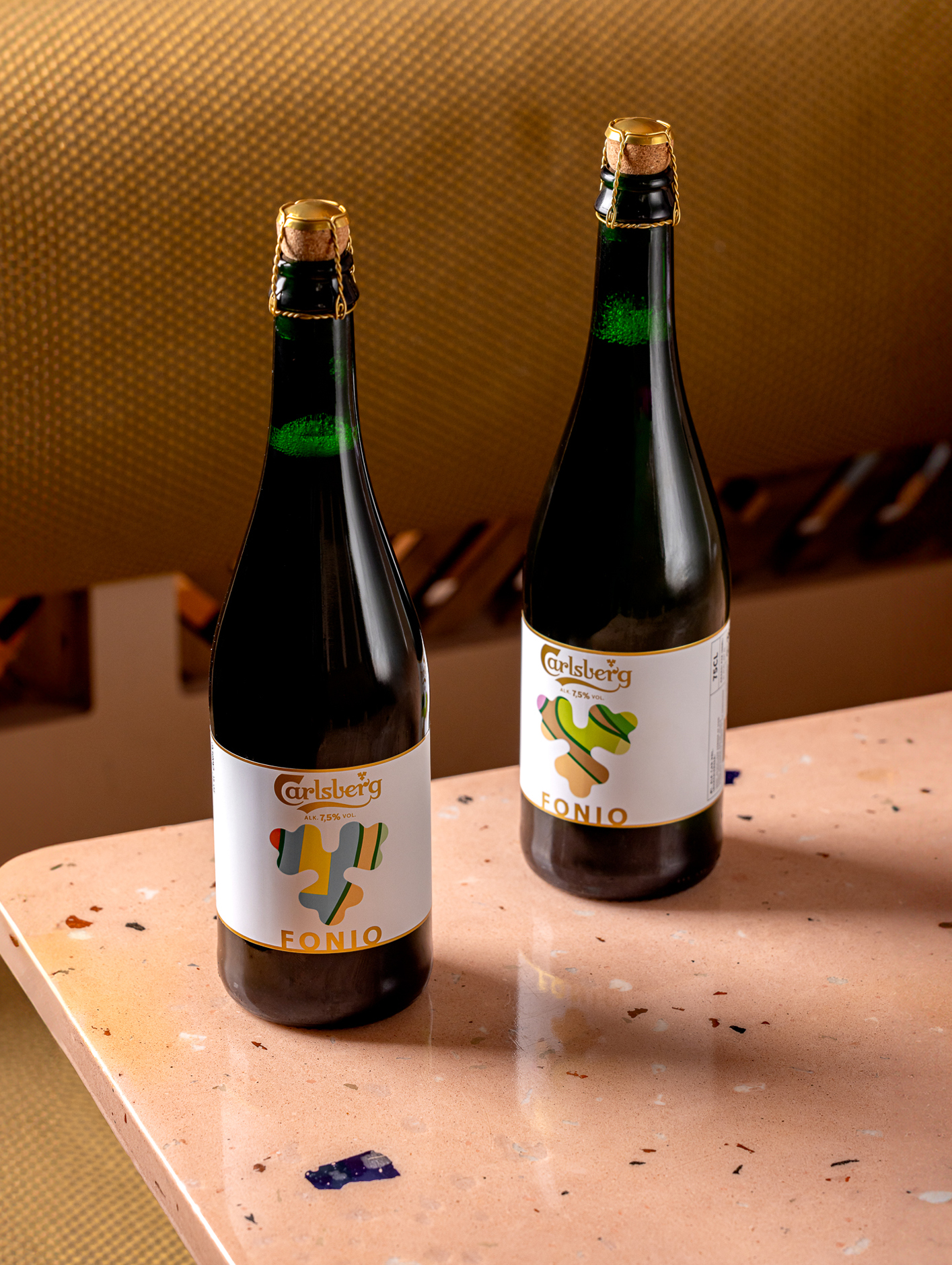WORDS
Chris Madigan
The Sun recently got into a tizzy about “Britain’s most expensive beer”, a 330ml serving of a Belgian lambic priced at £19 (“the equivalent of almost £60 for a single pint of beer,” gasped the tabloid) at Cask in Pimlico. One “outraged” customer fumed, ‘It’s the principle of the thing. I know it’s London prices but that’s ridiculous’. The upset punter had skimmed past dozens of beers on the menu, with prices starting at a quite un-London-like £5.50 a pint, so this was the equivalent of ignoring the £30 claret to be outraged at the four-figure bottle of Château Latour on a restaurant’s wine list. And, anyway, that was an on-trade price… Cantillon Iris costs around £23 a bottle from specialist beer retailers.
God help us if The Sun hears about Carlsberg’s latest beer, the limited-edition Fonio, which costs £113.80 for a 750ml bottle.

This is one of several premium and ultra-premium experimental beers to come from the Danish distiller’s Carlsberg Research Laboratory. This edition is produced in collaboration with Brooklyn Brewery’s brewmaster Garrett Oliver, as part of the Brewing for Impact initiative, of which both breweries (and others, including Guinness and the UK’s Thornbridge) are part.
Fonio is a grain native to West Africa, which, compared with barley and other typical beer grains, requires minimal water to grow. Nigerian-born chef Joké Bakare of Michelin-starred London restaurant Chishuru (which received the first 48 bottles of the beer to pair with a menu featuring the grain) says that fonio has been a go-to of her cooking for years.
‘It’s an ancient grain, which has always been associated with cooking in rural villages in West Africa. A little fonio goes a long way: you can use it like couscous, or a more creamy-like polenta, and it bulks up patties or stews. It’s so highly valued, there are some places where it forms part of dowries!’

That’s not the main cultural resonance in Bakare’s own life, it should be said: ‘It was our lifesaver when I was at uni,’ she adds. ‘You knew if you ran out of money, you could always make a soup from fonio.’ So, the Nigerian equivalent of a bag of lentils.
In terms of flavour, she says, it is a little like quinoa. ‘But I find quinoa a little bitter; fonio is sweeter and nuttier.’
Fonio as a beer, certainly in the hands of Carlsberg and Brooklyn, is fragrant and floral, unlike any traditional ale. It’s not sweet as such, but it is measured at just 12 IBU (international bitterness units) – less than many lagers and about a third of most IPAs. Details of the hops used (if any) have not been revealed. In a blind taste test, you’d be forgiven for mistaking it for a lightly sparkling sake – it has funky and tropical fruit aromas to it.

Bakare’s business partner and drinks expert at Chishuru, Matt Paice, has another analogy: ‘Garrett Oliver has gone on record justifying the price of beers such as this, saying that it’s the same chemistry as wine, with the same potential for transmitting terroir. I’m not sure that argument is entirely plausible, but I think you can see an explicit aspiration to reach the condition of wine. It’s not a million miles from pét nat [pétillant naturel] wines. It’s very expressive and has wonderful mouthfeel.’
While Carlsberg Fonio is undoubtedly a luxury drink right now (it even has the requisite collaboration with an artist – Cameroon-born commercial muralist, designer and painter Kevin Bongang – for the bottle art), the intention is to showcase a grain that could have a transformative effect if adopted more widely.
‘In some ways Brewing For Impact is the most important work I’ve ever done,’ says Oliver. ‘If what we’ve started truly catches hold in the industry, we will hopefully start seeing the wider use of a grain that has no need for irrigation, fertilisers, pesticides or other chemical inputs.
‘It also supports soil regeneration and provides a vital source of income for thousands of smallholder farms in West Africa, which are predominantly female-led – all while making some really fantastic beers.’
There are challenges. Carlsberg Research Laboratory had to work hard to find the right combination of enzymes to covert the grain’s starch into fermentable sugars. However, in the future, even the “outraged” customer in Pimlico might be prepared to buy a pint.





